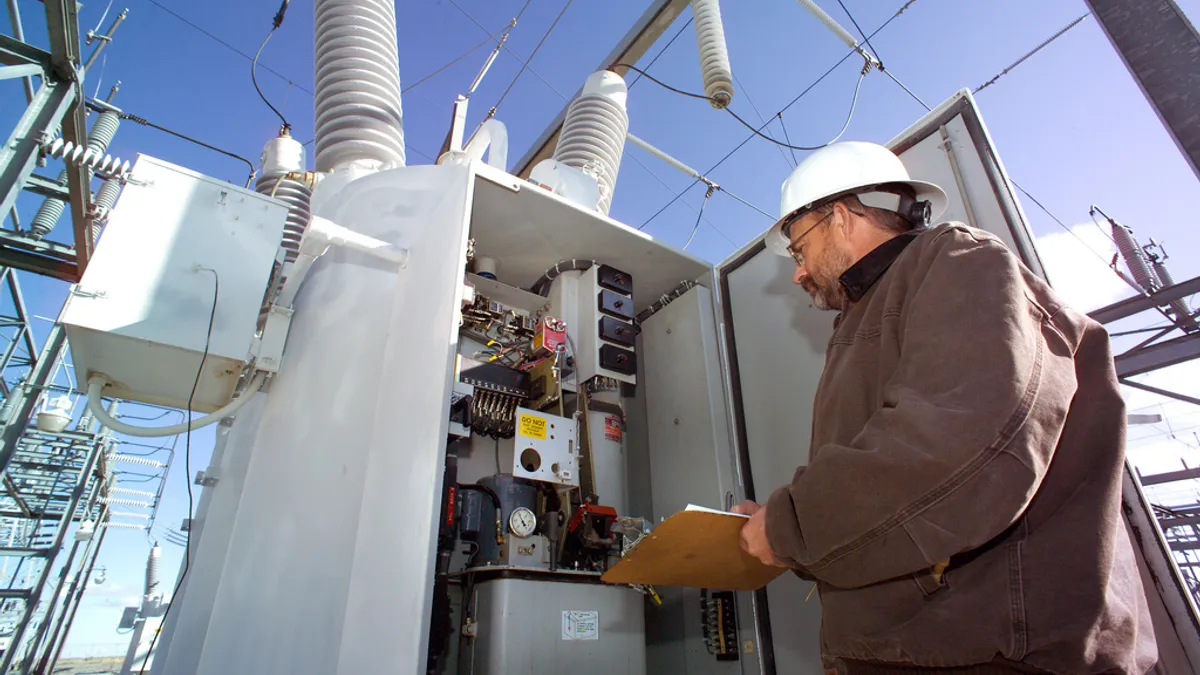Dive Brief:
- Eight companies are moving ahead to develop Grid Assurance, a service which will provide expensive and large transmission equipment to subscribers in the event of a physical attack, cyber attack or natural disaster, the Wall Street Journal reports.
- Federal regulators last month clarified several points crucial to Grid Assurance's service, including confirming the prudence of a utility subscribing and the availability of single-issue ratemaking to recover costs of purchasing spare equipment.
- Worries over the potential for a wide-scale attack on the power sector are rising, and last year President Obama signed legislation to create a strategic reserve of transmission equipment.
Dive Insight:
The backers of Grid Assurance got some good news last month when the Federal Energy Regulatory Commission (FERC) made a series of findings that pushed the company further towards providing grid security in the event of a disaster or attack.
FERC initially recognized the benefits of Grid Assurance's service last year, and the group subsequently developed a subscription agreement and has now received clarity from FERC in a declaratory order that enables broader transmission owner participation.
Among FERC's findings last month, the commission confirmed: the prudence of subscriber decisions to contract with Grid Assurance; the availability of single-issue ratemaking to recover costs of purchasing sparing service and spare equipment from Grid Assurance; and that affiliate rules are waived for Grid Assurance.
Annual information reporting requirements will begin a year from the start of sparing operations.
The company said in a statement that it "expects to begin marketing this service to transmission owners in the second quarter with subscriber acceptance, warehouse specification and inventory identification occurring over the next 18 months." Events where a subscriber could utilize the service include physical attacks, cyberattacks, electromagnetic pulses, catastrophic events, solar storms, earthquakes and severe weather events.
Previously, utilities have shared equipment among each other, but there is not a federal requirement for them to do so, WSJ noted. Ordering new equipment parts can take as long as 18 months, which could be too slow for an emergency.
Grid Assurance is being developed by affiliates of: American Electric Power, Berkshire Hathaway Energy, Duke Energy, Edison International, Eversource Energy, Exelon, Great Plains Energy, and Southern Co.















